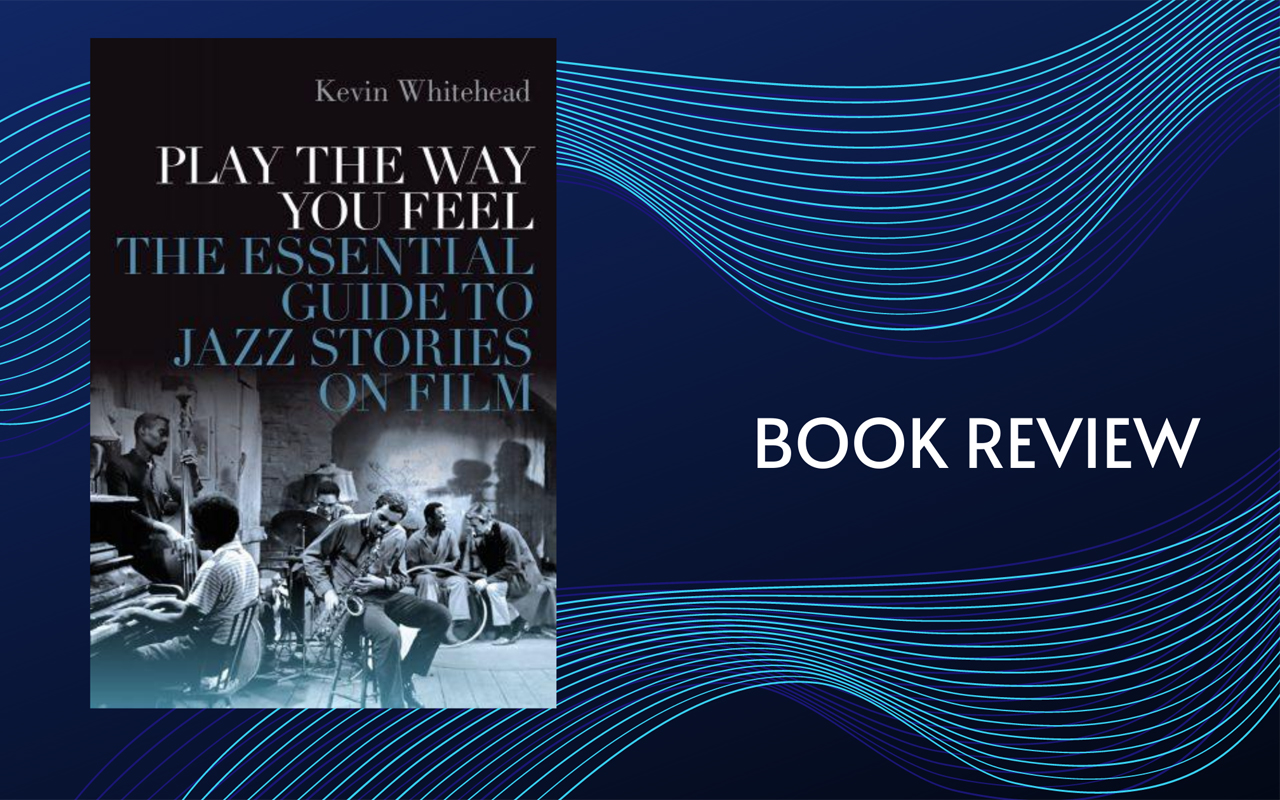
Play the Way You Feel: The Essential Guide to Jazz Stories on Film image courtesy of Oxford University Press.
Oxford University Press, 380 pp., $34.95.
If in these days of quarantine, if you find yourself dipping into more movies and books than usual, jazz writer Kevin Whitehead (commentator for “Fresh Air,” author of New Dutch Swing) has a delightful strategy for combining those pandemic pastimes. In a brilliant, one-of-a-kind new book, Play the Way You Feel: The Essential Guide to Jazz Stories on Film, Whitehead surveys 93 years of films dealing with jazz, from The Jazz Singer (1927) to Bolden (2019), mining them for recurring cultural tropes— or in some cases clichés—that illuminate how we think about the music and the culture that surrounds it. Here are movies about jazz as a young generation’s rebellion; a beleaguered underdog, playing second fiddle to European music; an African-American creation, envied and/or stolen by whites; a formula for reconciling personal freedom with the needs of the group; a battle for authenticity in a shallow culture; and, per the volume’s title, a truth serum that demands from its practitioners that they “play the way you feel.”
Not limiting himself to obvious candidates such as Young Man with A Horn, ‘Round Midnight, or La La Land—Whitehead writes about movies that will be discoveries, even for aficionados, including Sweet Music (1935), Orchestra Wives (1942), Ball of Fire (1942), Kings Go Forth 1958), Too Late Blues (1962), All Night Long (1962), Sweet Love, Bitter (1967), Space is the Place (1974) and Stormy Monday (1988). Along the way, he also covers a little TV—Treme (2010-13), Johnny Staccato (1959-60); some cartoons—The Three Little Bops (1957), the infamously racist animated segment of The King of Jazz (1930); an obscure documentary, The Cry of Jazz (1959); and two “soundies” (early short played on jukebox-like machines) featuring Bessie Smith and Duke Ellington. In his too-short section dealing with films that dis jazz, I wish he had engaged Cameron Crowe’s loathsome Jerry Maguire (1996), but hey, you can’t have it all.
A keen observer and penetrating, witty writer, Whitehead understands music and movies equally well—how Martin Scorsese’s New York, New York (1977), for example, is driven by “the tension between an improvisational aesthetic and showbiz gloss,” or how Clint Eastwood’s Bird (1988) “plays games with time in a way you can liken to bebop.” Unlike so many jazz fans, he isn’t upset when biopics like St Louis Blues or The Benny Goodman Story stretch the facts, unless of course if they are also boring.
Though it can serve as a handy bookshelf reference, Play the Way You Feel is not only a compendium of movie reviews—there are no grades; evaluations are implicit—but rather a fascinating cultural expedition with its own logical development. Still, you can usually tell if Whitehead likes a film. It’s a pleasure to hear him praise the shadowy, Seattle-based minor classic, The Fabulous Baker Boys (1989) or explain why Robert Altman’s Kansas City (1996) failed. The Gig (1985), one of my favorites, gets some airtime, though Whitehead oddly downplays the role of race in it. On the other hand, he has a keen eye for two racial tropes that pop up in jazz films again and again: whites confirming legitimacy on Black music by accepting it as high culture and Black musicians conferring legitimacy on white musicians by accepting them as authentic—or, as the title says, “playing the way they feel.”
But there is so much more to talk about. If you love movies and you love jazz, a real treat awaits you.
–Paul de Barros